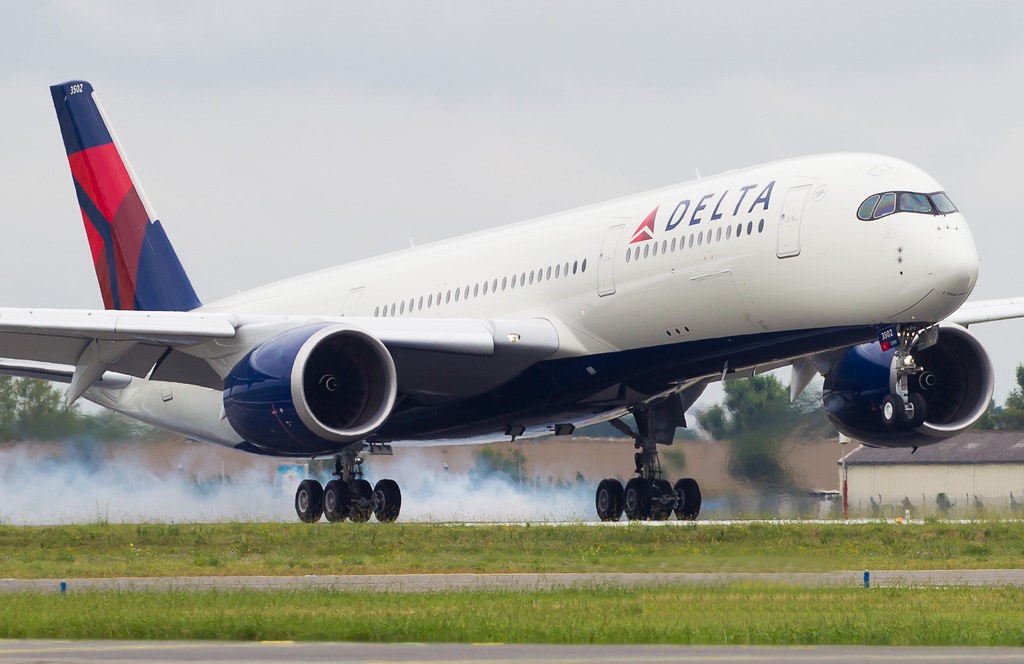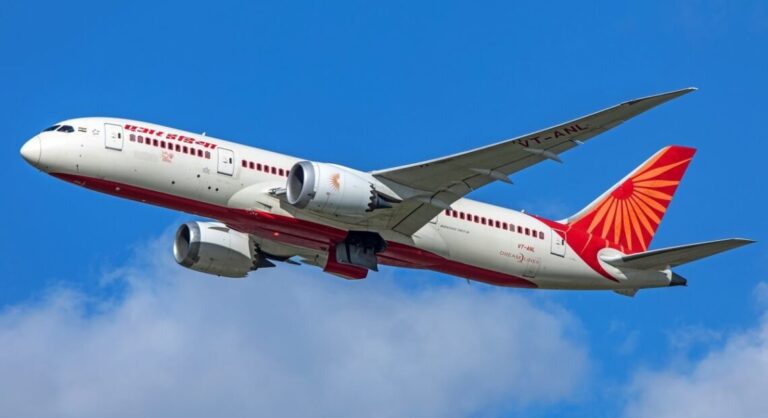Technology Delta Exclusive: Why Did Delta Flight DL275 Make an Emergency Stop at LAX?
What was supposed to be a direct journey across the Pacific took an unexpected turn. Delta Airlines Flight DL275, en route from Detroit to Seoul, made an unscheduled landing at Los Angeles International Airport (LAX) — leaving many wondering: What happened in the sky that led to this mid-air reroute?
In this post, we’ll explore the reasons behind the diversion, how the crew responded, and what passengers experienced onboard.

📍 The Flight Plan That Didn’t Go as Expected
Delta Flight DL275 is a transpacific route connecting Detroit Metropolitan Wayne County Airport (DTW) with Incheon International Airport (ICN) in South Korea. Typically operated using the advanced Airbus A350-900, this long-haul journey usually spans over 6,000 miles and lasts around 13 to 14 hours.
However, shortly after takeoff, while still over the U.S. mainland, the aircraft made a sudden detour and landed at LAX, far earlier than scheduled.
🚨 What Prompted the Mid-Flight Diversion?
Though Delta has not released a detailed statement, multiple reliable sources — including flight tracking data and social media posts from passengers — indicate that a medical emergency occurred mid-flight.
Read also United Airlines Flight UA770
Here’s what typically happens in such scenarios:
- A passenger falls seriously ill, prompting immediate medical attention.
- The crew informs the cockpit, triggering emergency diversion protocols.
- The pilots determine the nearest major airport, in this case, Los Angeles, capable of handling international aircraft and emergency services.
- The aircraft reroutes and coordinates with air traffic control for priority landing.
Thanks to quick thinking, the affected passenger was given prompt medical care upon landing.
🧑✈️ How the Crew Handled the Situation
The professionalism of Delta’s crew was a key factor in the successful emergency diversion. The sequence likely went as follows:
- Incident Identified: Cabin crew recognized the urgency of a passenger’s condition.
- Captain Alerted: The pilot assessed the situation and decided to divert.
- ATC Communication: Pilots contacted Los Angeles air traffic control to request landing clearance.
- Passenger Briefing: A calm and clear announcement explained the change in course.
- Ground Coordination: Medical teams were mobilized and waiting at the gate before touchdown.
This structured response showcases the depth of training and emergency preparedness that airline staff undergo.
👥 What Passengers Shared About the Experience
Social media gave us firsthand accounts of what happened onboard:
“We were halfway into our movie when the captain announced we were diverting to LA. Scary for a moment, but the crew was calm and reassuring.” – @GlobalNomad
“Medical staff were already at the gate. Kudos to Delta for the fast response.” – @MilesWithMike
Although the unplanned stop caused delays, many travelers praised the airline for prioritizing human life over schedules.
✈️ Are Flight Diversions Like This Common?
Emergency landings are not frequent, but they’re part of every airline’s contingency planning. Diversions can happen due to:
- Serious medical issues
- Technical malfunctions
- Turbulence or weather concerns
- Security threats
- Unruly passenger behavior
That said, fewer than 1 in 1,000 commercial flights end in diversions — making them rare but important when they do occur.
🛬 What Happens After an Emergency Diversion?
In Delta’s case, here’s what likely unfolded after landing at LAX:
- Emergency Response Teams boarded to assess the medical situation.
- Maintenance Staff may have inspected the aircraft to ensure it could safely continue.
- Passenger Support Services helped affected travelers with rebooking or lodging.
- Flight Continuation: Once cleared, DL275 either resumed its route or passengers were rebooked on a different flight.
Delta has a track record of prioritizing safety and providing logistical support during such events.
🧠 Aviation Community Reacts
Flight monitoring services like FlightRadar24 showed a sharp turn toward the California coast — sparking real-time conversations among aviation enthusiasts and analysts.
Industry experts commended Delta’s decision-making, noting:
- The quick diversion minimized potential medical risk.
- The landing was smooth and on schedule, despite the reroute.
- The airline communicated well with passengers and the public.
In a field where timing and coordination are everything, Delta’s handling of DL275 was deemed a textbook case.
🔑 What Travelers Can Learn from DL275’s Detour
Every aviation incident is a learning opportunity. Here’s what this one teaches us:
- Crew training saves lives – emergencies are rare, but flight crews are well-equipped to respond.
- Safety comes first, no matter the destination or delay.
- Passenger transparency builds trust, even when plans change unexpectedly.
Whether you’re a seasoned flyer or a nervous traveler, DL275 is a reminder that you’re in capable hands up there.
✍️ Final Thoughts: An Unexpected Stop, a Reassuring Response
While the Delta DL275 diversion to LAX disrupted its original schedule, it served as a strong testament to the resilience and reliability of modern air travel systems. The airline’s fast and effective response protected a life — and reassured everyone else onboard.
So next time your flight takes an unexpected turn, remember: sometimes detours are made for the right reasons.
❓Frequently Asked Questions
Q: How long was the delay due to the diversion?
Most passengers experienced a few hours’ delay, with assistance provided for connecting flights and accommodations if needed.
Q: Will the passenger involved in the medical emergency be identified?
No, airlines do not disclose personal medical information out of respect for privacy laws.
Q: Does this mean flying is unsafe?
Absolutely not. In fact, DL275’s response proves that the system is designed to handle emergencies with precision and care.


